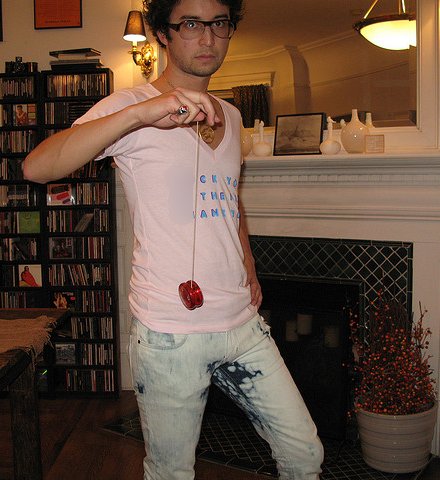Whenever you’re wrong, admit it; Whenever you’re right, shut up. – Ogden Nash
What does that mean?
This is a variation on a quote about silence and wisdom. It is even more apparent in the longer version of the quote: “To keep your marriage brimming, With love in the loving cup, Whenever you’re wrong, admit it; Whenever you’re right, shut up.”
It is almost always good to admit to others when you are wrong. It helps you learn, and it helps them learn. It also helps to reinforce your reputation for honesty and integrity. Just be careful around those who would use your honesty against you.
As for when you are right, does anyone really like to hear someone else say “I told you so”? I know I don’t. They know you said it, and it is ringing in their ears. There is no need to make things worse. Only a jerk would do that, and you’re not a jerk, right?
Why is not being a jerk important?
Both halves of this are part of not being a jerk. If you’re wrong, but refuse to admit it, or worse yet, continue to insist that you are right, that is most definitely in the realm of being a world class jerk.
Being right, and dancing around shouting “I told you so!” at the top of your lungs is also in the realm of being a world class jerk. Who wants to hear that kind of stuff, even if they’re not the person being mocked?
By not being a jerk, by being a decent and considerate human being, you help everyone do better. You help keep things calm, you help people remain relaxed, so that they may better deal with the situation they are in.
By not being a jerk, you are showing the world what kind of a person you are. The actions which are the opposite of ‘jerk’ show your honesty and your integrity, and speak volumes about your character, and that is always a good thing.
Where can I apply this in my life?
When I was younger, I was a world-class know-it-all, and I wasn’t afraid to tell others about it. I was more than willing to remind people that they had been warned about the situation, and that they had done opposite of what I had advised. And I was right far more often than not.
And I was an annoying jerk far more often than not. And to think that at the time, I couldn’t figure out why I didn’t have more friends. Now it’s a little more obvious as to the reason why. For some reason, things seem to be much clearer in hindsight. 8)
How often have you been wrong and refused to admit it? When was the most recent time? Is it recent enough to go to the people you were with and apologize? It is, in my opinion, a worthy thing to do, even if it is a little late. Better late than never, right?
Worse yet, at least in my opinion, is the ‘told ya so’ attitude. How often do you do that? When was the most recent time? Is it recent enough to go to the people you were with and apologize for being such a jerk? Even if it was a while ago, you should probably do it anyway. Even if they don’t appreciate it, you will know you did the right thing.
Now, to the heart of the matter. Up to this point, we’ve looked to the past. But how do we keep from acting like a fool today or tomorrow? That might depend on how often you tend to say things you shouldn’t.
At least in my case, I can feel an attack of smugness just before I open my mouth and say “I told you so!” Therefore, I try to notice that and catch myself before I act like a jerk. When you are in this kind of situation, do you feel your inner jerk getting ready to emerge?
That might be a signal to slow down and think about what you’re about to say, isn’t it? What other signs do you have that your inner jerk is about to strike? What can you do to try to slow it down? What can you do to raise your awareness about how much your words could hurt the other person?
And what can you do about the other side of being a jerk, and not fessing up when you were wrong? There are two steps to it, the first being to stop defending that which is wrong. The second is apologizing for having taken the wrong side in the first place.
It won’t be easy to do if all you think about is how it impacts your life and your emotions. Instead, try to think about how it will make the other person feel to hear you apologize. If they will be gleeful and spiteful, then you might want to just find better people to hang out with, right? But if they will be kind and understanding, that is far more important to me than my feelings being hurt. Do you agree?
The quote is about marriage, but it applies to any and every interpersonal relationship we have. What can you do today to make up for being a jerk in the past? What can you do to make it less likely you’ll be a jerk in the future? It’s up to you, what are you willing to do?
From: Twitter, @zen_habits
confirmed at : http://www.brainyquote.com/quotes/quotes/o/ogdennash159112.html
Photo by kenji ross








Pingback: Why admitting you’re wrong is the right thing to do - What I wish my dad told me
“I was wrong” is almost as liberating as “I am sorry.” So much freedom! I need to practice both of them even more.
Thanks for the reminder.
Indeed, those are both very powerful phrases. Even when said in the absence of the other person, they can provide benefit, and help us prepare for facing someone and uttering the words.
Glad you found the post of use.
Its difficult to admit when we know we are wrong as the temptation to be right is very powerful. The same thing happen when we know we are right.
Great post I need to remember this.
Thanks for the kind words. I’m glad it will have some use for you.